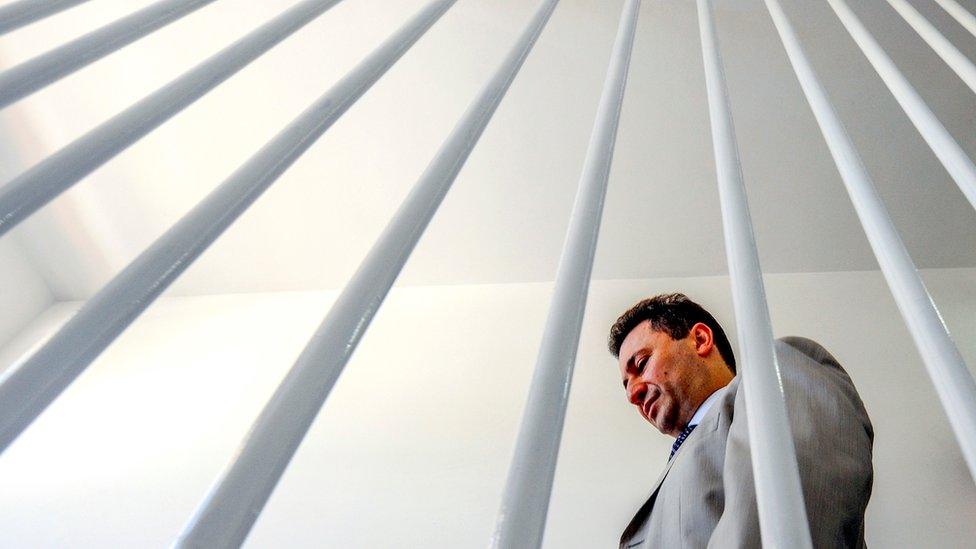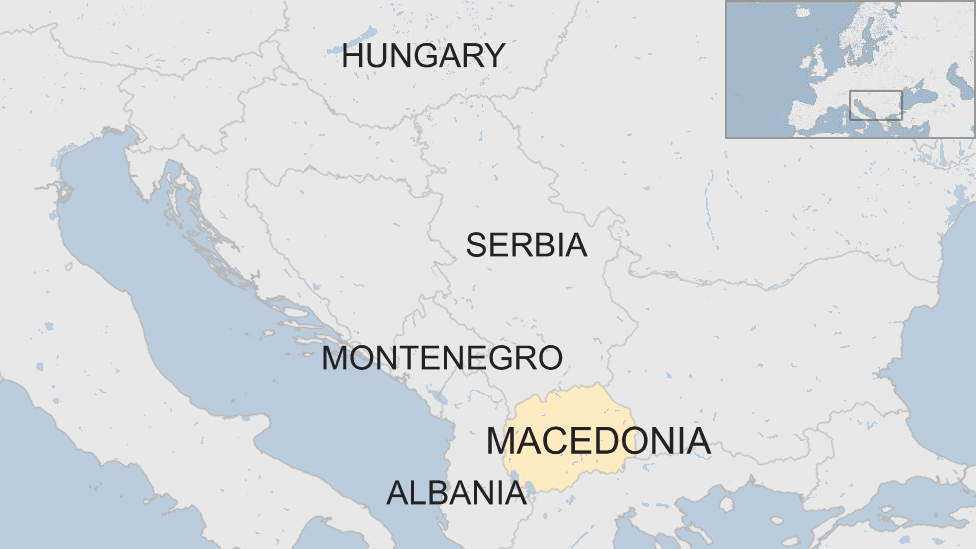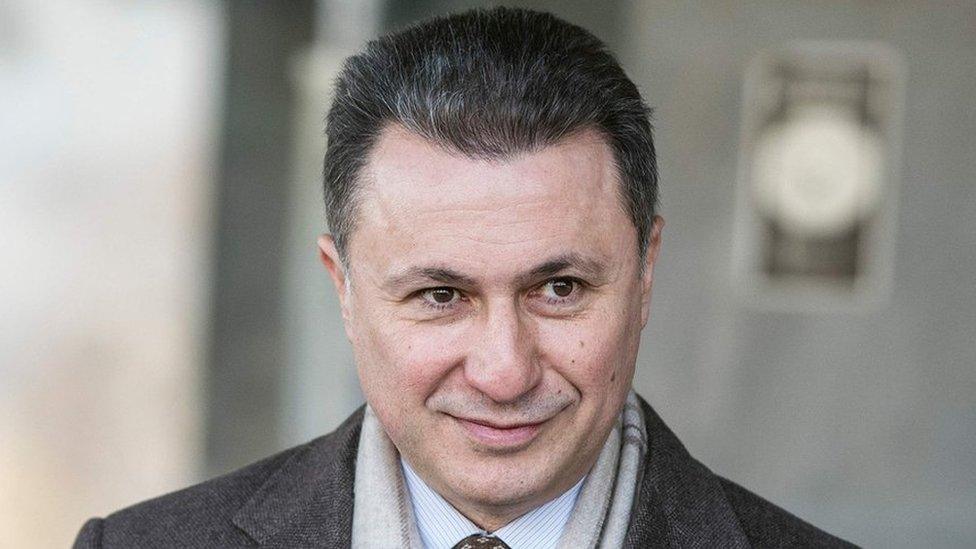Nikola Gruevski: Mystery over how Macedonia ex-PM escaped
- Published

Nikola Gruevski is seen here visiting a renovated prison in Macedonia in 2009
Hungary has confirmed that an ex-prime minister of Macedonia has claimed political asylum after fleeing a prison sentence for corruption.
Nikola Gruevski arrived in the Hungarian capital, Budapest, this week after failing to surrender last Friday.
Hungary said it had no hand in his escape over the border from Macedonia and declined to say how he had reached Budapest.
It has now emerged he left via Albania, and left in a Hungarian embassy car.
The mystery had deepened because Gruevski's passport had reportedly been confiscated.
Macedonia is preparing to make a formal request to Hungary for his extradition.
He was forced from office in 2016 over a wire-tapping scandal and this year a court found he had unlawfully influenced officials over the purchase of a luxury bulletproof Mercedes Benz. He says the charges were politically motivated.
A new government led by social democrats is now in office.
How did he get away?
Confirming that Gruevski was in the country, Hungary's government did not disclose his movements on Thursday.
Hungarian Prime Minister Viktor Orban's cabinet chief, Gergely Gulyas, said only that the fugitive former prime minister had sought asylum at a Hungarian representation outside Macedonia, and that Hungary had played no part in getting him out.
On Tuesday, Gruevski had posted on Facebook to announce that he was in Budapest, external and had claimed political asylum after "countless" threats against his life.

A statement from Albanian police says Gruevski was "a passenger in a car belonging to the Hungarian embassy", external in Tirana, Albania's capital, when it crossed the country's northern border into Montenegro on Sunday evening.
A warrant for his arrest was only made known to the Albanian authorities on Tuesday, the statement said.
Montenegrin police confirmed he had entered the country and left on Sunday. From Montenegro by land, the simplest route to Hungary would be to travel through Serbia.
Police in Macedonia have started investigating their own ranks for possible accomplices in the escape, the Macedonian government said.
Why go to Hungary?
Gruevski served as Macedonian prime minister for a decade from 2006, and as leader of the VMRO-DPMNE party from 2003 until 2017.

Gruevski (L) had good relations with Viktor Orban (R)
During that time he had good relations with fellow nationalist Viktor Orban, who commended him for his efforts to stop undocumented migrants passing up through the Balkans towards western Europe.
The Hungarian government said in a statement that it "in no way" wished to "intervene in the internal affairs of sovereign countries, and we consider the assessment of the former Macedonian prime minister's asylum request to be solely a legal issue".
The asylum claim could also prove difficult for Hungary's already strained relations with other EU states. Macedonia itself is seeking to join the EU.
An EU spokesperson told the BIRN news site that Brussels was following events and that the case "must not be politicised".
- Published23 May 2018

- Published6 May 2015
